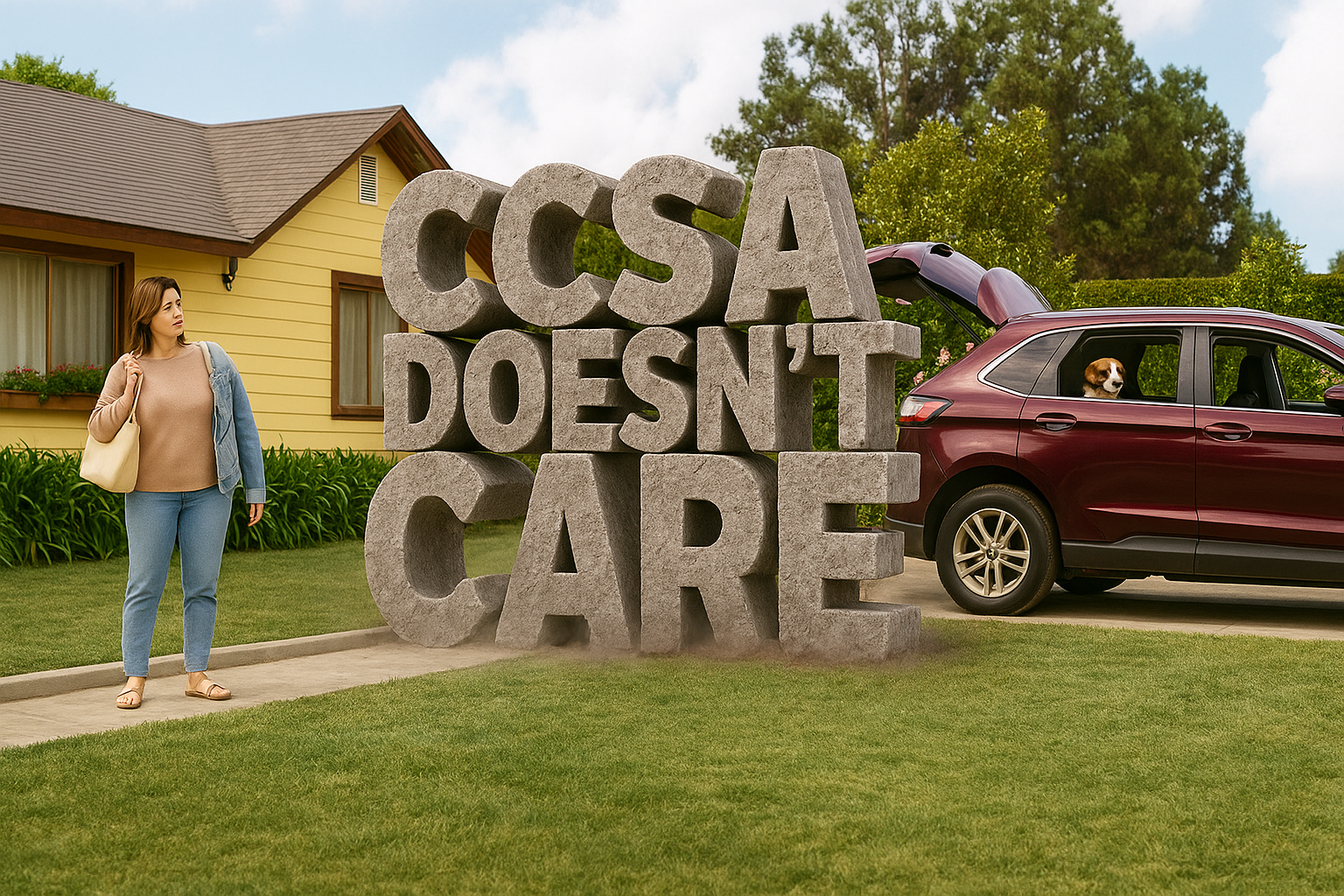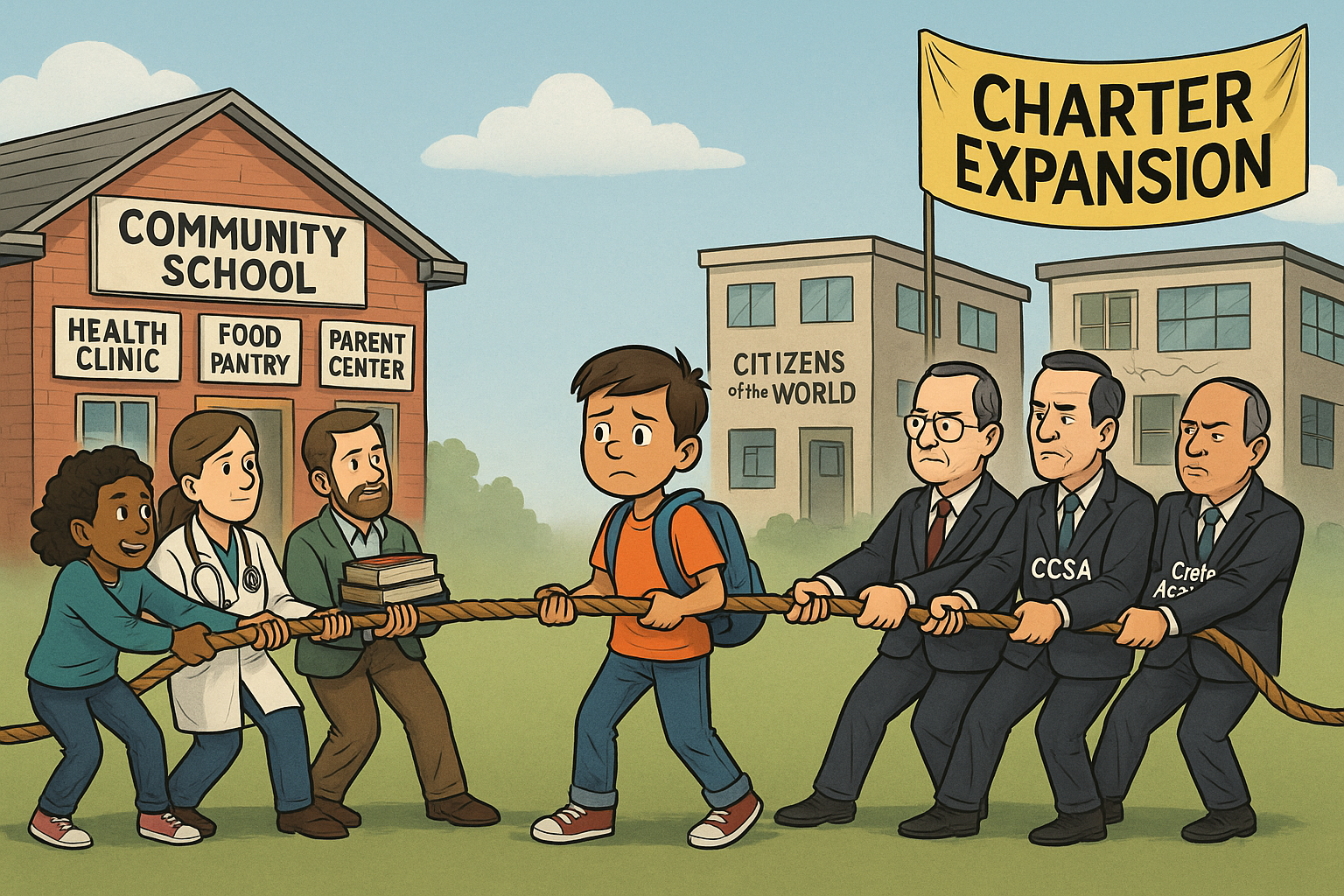CCSA Doesn't Care
Public schools in Los Angeles serve a student population overwhelmingly impacted by poverty. Yet, the resources they need to meet these challenges are being undermined by a legal and political fight over school space, led by the California Charter School Association (CCSA).
When critics of the public education system complain about its failures, especially in urban areas, they usually ignore one critical fact; the ability to perform well academically is significantly tied to the socioeconomic status of the student:
Financial Resources: While families in poorer neighborhoods may struggle to provide basic necessities, those without this concern have more funds to invest in tutors and extracurricular activities that are proven to boost academic performance. A parent working multiple jobs is less likely to provide supervision of homework or otherwise oversee academic progress. Older children may need to work to help support their family, reducing the time available for studying or forcing a student to drop out of school
Health and Wellness: Since socioeconomic status is linked to health outcomes, students in poorer neighborhoods are more likely to miss class due to illness or be affected by the stress of a medical crisis within the home. Food and housing insecurity increases stress levels which interferes with learning. Not receiving proper nourishment can also impair cognitive development.
The Chain of Poverty: Since parents in poorer neighborhoods were also likely to have grown up in families that were also low socioeconomic, their academic progress was likely affected. This would mean that they are less prepared to give their children the help they need and makes it harder for them to set the proper academic expectations for their children.
Recognizing these challenges, the teachers’ union (UTLA) fought during the 2019 strike to force the District to expand the use of community schools throughout the LAUSD. These schools go beyond the delivery of education to confront other needs so children can be better equipped to learn. This may include on-site health care clinics for students and their families, parent classes to enable caregivers to be better partners in their children's education, or providing access to food to eliminate food insecurity.
Providing these types of support services to improve the lives of our city’s vulnerable children requires a significant investment of space on school campuses. The ability of the LAUSD to do this is hampered when space is given away to charter schools under PROP-39. To prevent this from happening the District’s elected School Board passed a resolution blocking “the co-location of charter public schools at more than 300 LAUSD campuses designated as Community Schools, Black Student Achievement Plan schools, and Priority Schools.”
Ignoring the needs of the vulnerable children who attend these schools, the CCSA sued the LAUSD requesting the publicly funded private schools they represent be given priority over programs to help District students achieve their full academic potential. Instead of allowing Los Angeles public schools to provide medical clinics, parent education centers and other programs to help compensate for the effects of being from low income families, they want to allow failing charter schools like the North Valley Military Institute (NVMI) or Crete Academy to be given their space. They argued that children of color should be denied this space so that white flight charter school chains like Citizens of the World can operate instead.
PROP-39 never mentioned “co-location,” yet the CCSA continues to use it as a legal wedge to seize space from public schools. This lawsuit is the latest in a series brought by the CCSA that has resulted in denying vulnerable students, whose parents have chosen to send them to public schools, the space they need. In the past, this has resulted in children with special education needs receiving services in closets and stairwells after charter schools were given their classrooms. In another case, a student was subjected to severe bullying over his disability because a charter school was operating on his campus without any meaningful oversight.
In a press release celebrating their victory in the latest battle in this court case, the CCSA bragged that this “is a major win for Los Angeles’ charter…school communities.” Admitting that these privately operated schools are often unable to provide “safe, suitable facilities” without taking space from public school students, CCSA Vice President Keith Dell’Aquila ironically claimed the District’s policy “disproportionately harmed Black and Latino students in LAUSD,” the very groups who will be denied important services because portions of their public school buildings will be given to charter schools.
The Charter School Industry was created with a promise that privatizing education would improve academic results. Despite their ability to pick the students they wish to serve, these publicly funded private schools have not been able to significantly outperform public schools in the 32 years they have been operating in California. In many cases charter schools are underperforming the schools they try to replace. In large part, this is because they have to deal with the same socioeconomic conditions as their public school counterparts. CCSA should drop its objections and give the LAUSD the chance to improve the lives of these children.
Carl Petersen is a proud father of five adult children, including two daughters on the severe end of the Autism spectrum. A passionate advocate for special education, he ran as a Green Party candidate for the LAUSD School Board. Renowned education advocate Dr. Diane Ravitch has praised him as “a valiant fighter for public schools in Los Angeles.” Recently, Carl relocated to the State of Washington, where he is embracing his role as “Poppy” to two grandsons. You can explore his insights and perspectives through his blogs at www.ChangeTheLAUSD.com.



